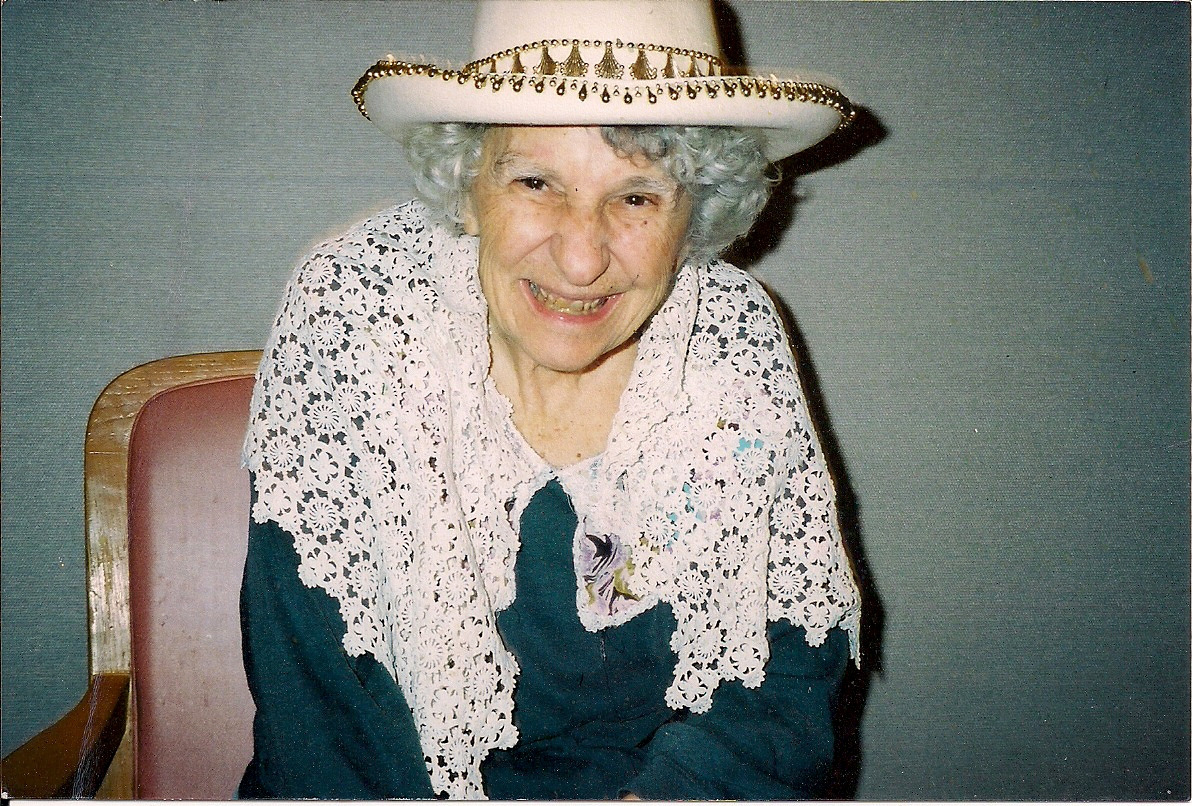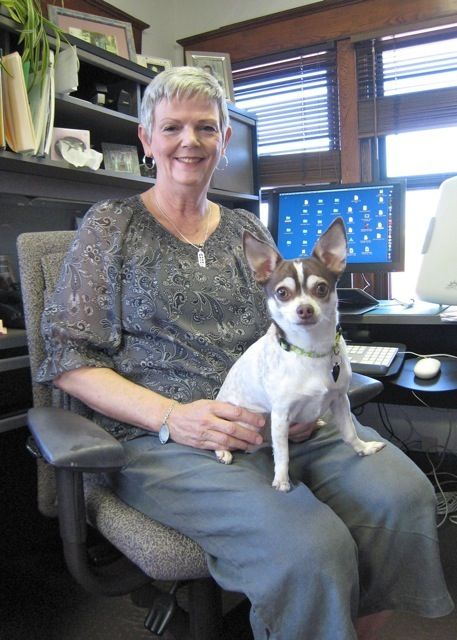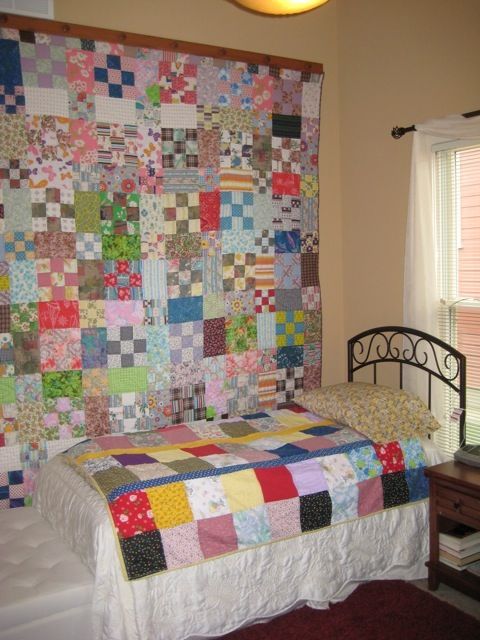Posts Tagged ‘spirituality’
Appreciating the Power of Love
“How long have you been together?” the younger couple asked Ron and me.
“Twenty-two years,” we answered.
“Wow!” they said. They’d been in love for seven months and our decades-long romance must have seemed exotic and slightly unbelievable.
“What are the secrets of a good relationship?” they asked. “Please share your wisdom.”
First, Ron and I basked in the idea that two people believed we possessed actual wisdom! Then we shared our insights.
How We Learned about Love
Our insights came from growing as individuals and as a couple during our wonderful long relationship and from earlier relationships that had helped us become our true selves. We also learned from watching our parents maintain their relationships in the face of dementia.
When Ron’s father Frank was in a memory care unit, Ron’s mom Mollie told her husband, “I love you so much.” Frank replied, “Not as much as I love you!.” Those were some of Frank’s last words and that sentence stayed with Mollie through and beyond her grieving.
During my growing up years, my father was circumspect in declaring his love for Mom. But when she slipped into dementia, Dad showed me what a true romantic he was. He treated her like he was courting her; he showered Mom with compliments and kisses and frequently he expressed his love for her. Even when she could no longer talk, she still enjoyed her favorite foods—he faithfully fed her sliced strawberries and chocolate candies.
Love Me Tender, Make Me Laugh, Always Have My Back
My parents were my role models and I also learn an enormous amount from the couples I interview every week for the love story column I write for the Kansas City Star Magazine. Here are some of the qualities people most love about their life partners and spouses.
Loves me just as I am
Takes care of me/Always has my back
Makes me laugh
Shares my values/ Complements me
Works hard/ Is honest and reliable
Always puts other people first/ Always puts me first
Inspires me to be better/ Appreciates me
Love Lights the Way
Some months ago, Oprah had author, visionary and cultural mid-wife Jean Houston on her TV show. “What do you wish people knew?” Oprah asked Jean.
“I wish people knew how powerful love is,” Jean answered.
That was one of the grandest lessons from my journey with my mom through her dementia: the power of love. Her love lasted all her life, far beyond her memory of things and people. Her love was a spark that lit up her life and mine.
Trusting The Loss Of Your Identity
I met Mary O’Malley when I interviewed her for an article in Natural Awakenings Magazine. She inspired me then and she continues to inspire me. I am honored to share an abridged version of her post with you.
Trusting The Loss Of Your Identity
From Guest Blogger Mary O’Malley, author of What’s In the Way IS the Way
A friend of mine lost her husband about a year ago. She was his caretaker for many years, and before that, she cared for her ailing parents. She feels like she doesn’t know who she is anymore and is trying to figure out what she is supposed to be doing next. She feels like her identity has been taken away. I believe just the opposite is happening. Life has taken away the caretaker role so she can get to know who she really is.
I too have experienced what it is like to have the old identity ripped away. It feels like a butterfly whose wings are wet and cannot move. Often times our self-worth is tied to how much we accomplish or how much we can get done. When part of our identity is taken away from us, it is painful and scary. And our poor little mind goes crazy because it has always found a sense of safety through the illusion that it is in control. The mind is a tool for maneuvering through reality, but it is not reality.
I believe Life is preparing us for being birthed back into the vast spaciousness of who we truly are. But, it can be confusing and scary for the ego. As the Tibetan Lama Chögyam Trungpa Rinoche says, “If there were no confusion, there would be no wisdom. Chaos should be regarded as really good news.” When we lose a part of our old identify, there can be so much confusion and grief that it feels like death. But, actually something new is being born. Remember that, although birth is wonderful, it is not neat and pretty. A human birth has pee and poop and blood, and it is painful. So it is important to do our Lamaze breathing, whether we are birthing a child or Life is birthing us! We can resist this process, or we can recognize that Life knows what it is doing as it takes this away and that away.
The next time you feel challenged, try asking Life for help by saying, “Help me through this passage, and show me how to see what you are showing me so I can be healed to my core.”
To read the entire blog, visit: http://www.maryomalley.com/2015/04/05/trusting-the-loss-of-your-identity-2/
To be further inspired by Mary and her work, visit: http://www.maryomalley.com/books/
Deborah Shouse is the author of Love in the Land of Dementia: Finding Hope in the Caregiver’s Journey.
Stepping into the Care Partner’s Journey: Creating the Path
 It was 4:00 am and Carlos and Luis, our Ecuadorian guides, waited patiently by the dugout canoe. It was a half-hour boat ride and an hour trek to the salt lick where the wild parakeets descended early every morning. Carlos had described the cacophony of sound and the brilliant flashes of yellow that blotted out the sky when the birds arrived and Ron and I were eager to be part of the experience. The morning was silent save for the paddles pushing through the still waters. When we reached the land, Carlos tied the canoe to a thorn tree and Luis helped us out of the boat. In the dim light, I headed toward what looked like the only opening into the brush. But Carlos stopped me.
It was 4:00 am and Carlos and Luis, our Ecuadorian guides, waited patiently by the dugout canoe. It was a half-hour boat ride and an hour trek to the salt lick where the wild parakeets descended early every morning. Carlos had described the cacophony of sound and the brilliant flashes of yellow that blotted out the sky when the birds arrived and Ron and I were eager to be part of the experience. The morning was silent save for the paddles pushing through the still waters. When we reached the land, Carlos tied the canoe to a thorn tree and Luis helped us out of the boat. In the dim light, I headed toward what looked like the only opening into the brush. But Carlos stopped me.
“Deborah, you’re heading in the wrong direction,” he said. He held up his machete and pointed to a tangle of vines and trees off to the left. “This is our trail.” And he and Luis began creating a path through the jungle.
Recently, my friend Janet Sunderland shared this Joseph Campbell quote: “If you can see your path laid out in front of you step by step, you know it’s not your path. Your own path you make with every step you take. That’s why it’s your path.”
So many times during my time with my mother, I was drawn to those bright openings, the beautiful array of well-worn steps. All too soon, I would be reminded by an inner or outer voice, “Deborah, you are heading in the wrong direction.” And I was guided back to the core of my care partnering journey, the intense creativity of the path-in-progress, step by step, creating a trail only I could make.
 Deborah Shouse is the author of Love in the Land of Dementia: Finding Hope in the Caregiver’s Journey.
Deborah Shouse is the author of Love in the Land of Dementia: Finding Hope in the Caregiver’s Journey.
Forget Control: Remember Breaking Through
Too many times, after I’d spend time with my mom, I’d come home and instantly misplace my car keys or forget a phone number. The panic rocketed through me, the fear almost knocking the breath out of me, and I’d think, “I’m losing my mind; it’s happening to me.”
I recently read an insightful and reassuring blog by Mary O’Malley, author of What’s in the Way Is the Way. Mary offers a creative and spiritual perspective on the concept of forgetfulness. Here are some excerpts from her work.
It’s a Breakthrough, Not a Breakdown
By Mary O’Malley
A friend of mine is struggling right now. He has been the caregiver for his spouse for quite a few years and lately, he often feels disoriented, confused, and has had trouble remembering things.
He said recently, “Mary, I think I am losing my mind.” He went to his primary care provider, but so far, all of his medical tests are negative. So, what is going on?
I believe that my friend is experiencing an initiation through fear. He thinks he is having a breakdown, but I call it a breakthrough. Losing our mind is one of our biggest fears. Most of us think our mind has been our safe place; we believe it needs to be on top of everything and in control. It has given us a false sense of security our whole lives. When we believe the mind is checking out or losing control, we have a hard time accepting it. But we are not in control; life is in control. We are all going to completely lose control at some point. Our bodies are going to break down. We are all going to die. And there is actually something inside of us that is totally okay with all of that. Life loves us enough to give us the exact set of experiences we need in order to become free from fear, including the experiences of confusion, disorientation, and memory loss.
Often we think we are in control, but are we? Are we in charge of our breathing? Some people would say, “Yes.” But just try to stop your breath. We can make it shallow or deep and we can hold our breath, but ultimately we are not in charge of our life force: We are being breathed by life. Stephen Levine, author, poet, and spiritual teacher, says, “May you be so lucky to come across something you can’t control.” This is where we find the healing.
The Tibetan Lama and founder of Naropa University, Chögyam Trungpa Rinpoche gets to the heart of what we are exploring here when he says: “If there were no confusion, there would be no wisdom….
Chaos is workable…not regressive.
Respect whatever happens, chaos should be regarded as extremely good news.
Respect the upsurge of energy that is emotions, no matter what form. … Let yourself be in the emotion, go through it, give-in to it, experience it….. Transmutation involves going through such fear.”
In other words, confusion is a necessary part of our spiritual awakening. What would your life be like if you trusted it all, even deep fear and confusion?
To read Mary’s entire blog, please visit: http://www.maryomalley.com/2014/12/07/its-a-breakthrough/
To learn more about Mary and her work, visit: http://www.maryomalley.com/
Deborah Shouse is the author of Love in the Land of Dementia: Finding Hope in the Caregiver’s Journey.
Finding the Spiritual in the Early-Stage Journey: Evianne Fogel’s Inspiring Message
“Mrs. Fogel, you are forgetting stuff all the time,” one of Evianne Fogel’s Job Corps students told her.
Evianne was 62-years-old and she had sensed something was amiss. But she didn’t know that her fellow teachers had been covering for her. She didn’t realize that some of her behavior in the classroom was not appropriate.
“They were gentle with me when they told me I needed to quit teaching,” she says.
Her doctor’s visits confirmed she had serious memory issues. She sensed the bitter truth before the doctor told her: she had Alzheimer’s Disease.
Learning How to be Home Alone
Teaching was a huge part of her life. Evianne was a pioneer in working with disadvantaged children and she’d won national notice for her innovative ideas and techniques. She’d traveled the country setting up Job Corps education programs.
Suddenly, instead of having a fascinating job with engaging co-workers and challenging students, she had the four walls of her Cincinnati living room.
“When you’re working all the time, you fantasize how wonderful it’s going to be when you retire,” Evianne says. “But at first, it felt like death for me. I’d sit on my couch and amuse myself by seeing the patterns in the stucco walls. I felt I was put in a chamber with no one else around me. I was used to working and I didn’t how to be in a house all day long.“
Finding Grace in Every Tree Branch
Evianne has a supportive husband who tried to help her adjust. At first, she felt angry and sad. Then, she tapped into her innate resilience.
“I have a sense of higher power,” she says. “I pray and I do feel like there is grace and forgiveness; I think it’s in every tree branch, if we are willing to receive it.”
Evianne had to learn to be alone. It was a difficult moment-by-moment, day-by-day lesson. She practiced talking walks and doing yoga at home.
She also poured more time into her music. She adores playing the piano and volunteers one day a week, giving music lessons. And she’s started on the book she’s always wanted to write, about the amazing inner city children she’s been honored to teach.
Evianne views this time as a gift. She knows she repeats things; she is easily lost and often forgetful. But she is embracing this journey as a chance to deepen her spiritual connection with her higher power and with herself.
Deborah is the author of Love in the Land of Dementia: Finding Hope in the Caregiver’s Journey.
Let Go and Notice the Answers
For me, part of being a care partner is letting go of worry and control and being open to intuition and flow. Here is a story from my life where I almost didn’t notice I was “in the flow!” Has this ever happened to you?
Opening to Answers
“Some people think it’s holding that makes one strong — sometimes it’s letting go.” -Unknown
Driving to the writer’s conference, my hands were sweating and my throat was tight. I had given workshops before, but I felt very nervous about this one. What if I had nothing to say? What if nobody learned anything? What if they looked at me with bored and indifferent eyes?
As I drove down 55th street, I thought, “You have prepared and you are going to do your best. Now it’s time to ‘let go and let God.’” I took a deep breath and felt a little better.
Then my inner worrywart boomed, “You could have tried harder, practiced more, done more research. You don’t have one original thing to say.” By the time, I pulled into the parking lot the steering wheel was damp with my sweat.
The conference was held in a mid-town church and the lobby was bustling with people.
“Your room is down the stairs and to your right,” the woman in charge told me.
I walked down the stairs and to the right. I saw a bathroom and a coat closet. I opened one door into a maintenance room, stacked with toilet paper and paper towels, brooms and mops. Then I noticed another room: tucked into an obscure corner — it was a small chapel. I walked in, taking in the serenity, the rich maroon color of the chairs, the soothing pattern of the stained glass windows. I felt calm and centered in this room. I tiptoed to the pulpit and stood behind it, like I had something holy to say.
Then I realized, I was going to be late for my class, Frantically, I retraced my steps, but I couldn’t find any room large enough for a class. I raced upstairs and found the woman again.
“I can’t find my room,” I told her. “There’s only a chapel in that area.”
“That is your room,” she said, “You’re teaching in the chapel.”
I walked back down slowly, smiling all the way.
My prayer, to let go and let God, had been answered in a most concrete way. I had almost been too busy worrying to notice.
An Alzheimer’s Holiday Blessing
As my mother’s Alzheimer’s progressed, her spiritual openness increased.
This is an excerpt from my book Love in the Land of Dementia that describes Mom’s new way of celebrating the holidays.
**
We roll back into the facility’s dining room just as the show is ready to start. The singer, Thelda, kicks off her shoes and presses play on the boom box. Above the cheerful sound track, she sings Jingle Bells. She dances across the room with the remnants of ballroom steps. She stops in front of Mom and sings right to her. She gets on her knees, so she can look into Mom’s eyes, and keeps singing. Mom notices her and smiles a little.
Thelda moves on, singing to each of the patients gathered around, so intent on making a connection that she often forgets the words.
“Is it all right for your Mom to come to Christmas holiday events?” the activity director had asked me, when Mom moved into the skilled care portion of the nursing home.
“Yes, I’d like her to go to any activities. She likes the extra energy.”
I think Mom would approve of my decision, even though she has never celebrated Christmas. Growing up, her immigrant mother held on to the Jewish spirit of her home, kneading dough for Friday evening challah, observing each holiday and prayer period in her own way. Some orthodox women followed the religious law that commanded a small piece of the dough be burned as an offering to God. My grandmother was poor; she did not believe in burning good food, regardless of tradition. So she sacrificed a portion of the dough to her youngest daughter, my mother Fran. She created a “bread tail,” leftover dough that she baked, then smeared with butter and sprinkled with sugar . When Mom used to talk about her mother, she always mentioned this special treat.
Even when I was growing up, and we were the only Jewish family in our neighborhood, my mother still did not sing Christmas song. She let the holiday rush by her, like a large train, whooshing past and leaving her behind.
Now, I am singing Christmas carols to my Mom for the first time and she is smiling. She has moved beyond the place where the religions are different, beyond the place where she wants to separate the dough and make a sacrifice for tradition. Her new tradition is anyone who can make her smile.
With each song, from White Christmas, to Silver Bells, to Frosty the Snowman, Thelda moves back to Mom, tapping her, acting sillier and sillier. Each time, Mom lifts her head and widens her mouth for a second.
For her finale, Thelda puts on a big red nose and sings Rudolph. When she dances in front of Mom with that scarlet nose, Mom laughs, her face a miracle in pure enjoyment. I laugh too, so delighted to see Mom engaged and absorbed.
Two weeks from now, I will bring a menorah and candles into my mother’s room. My father and I will have a short Chanukah ceremony with Mom. She will pick at the shiny paper covering the Chanukah gelt (chocolate candy disguised as money). She will slump over in her chair. But she will come back to life when she sees me, her only daughter, wearing a big red nose as I light the menorah.Here’s to a meaningful and fun holiday season.
I look forward to connecting with you when I resume blogging in early January.
Six Spiritual Practices For Living with a Diagnosis of Dementia
Normally, you can put my friend Vicki Stoecklin in any city and she will easily get her bearings. From Paris to Dubai to Marrakesh, Vicki is used to working in and making her way around foreign countries.
So, at age 58, when she started getting lost in her own city, she knew something was seriously wrong.
Vicki had been plagued with a series of chronic physical ailments and she figured she’d deal with whatever this new issue was.
But she was caught off when the neurologist said bluntly, “You have dementia.”
“What am I supposed to do?” Vicki said.
“Live your life,” he said.
Learning to Live with Dementia
Initially, ”living life” was a huge challenge. She had trouble remembering where she’d put things; her feelings were disoriented. She could no longer drive and or do simple math. Her vision played tricks on her: she saw black holes where there were none. And she felt isolated from her community and friends.
But Vicki had a wealth of inner strength and resources. When she told me about her spiritual practices, I was inspired and moved. Here are a few of the ideas she uses to center and care for herself.
Learning Self-Compassion
“I learned to have compassion for myself,” she says. “If I’m having a hard time concentrating on a book, I stop and do something comforting, instead of pushing myself.”
Using Family Treasures to Encourage Contemplation 
Vicki enjoys contemplating her grandmother’s hand made quilt, which hangs on the wall of Vicki’s meditation room. “She probably had Alzheimer’s when she stitched those squares together,” Vicki says.
Inviting out the Inner Artist
Vicki uses crayons, watercolors, and colored pencils to explore her own artistic process.
“My depth and visual perception is off, so my work is abstract,” she says. “I also find it meditative to color labyrinths and mazes.”
Opening the Heart to Spiritual Texts
Vicki has a number of trusted books she calls upon.
One favorite is Peace in the Storm: Daily Meditations and Prayers for Those Affected with Chronic Illness.
“This book has been a great support to me,” Vicki says. “It’s about finding your relationship with God during the challenges of ongoing illness.” Another book that spoke to Vicki was Proof Of Heaven by Eben Alexander, a neurosurgeon who writes about his near-death experience. She also frequently reads Psalms.
Praying With and For Others
Vicki has a small box that she puts little prayers in for her grandson and her daughter. She has become a chaplain at her church and often prays for others. She also finds comfort in using the 24-hour prayer service at Silent Unity
Documenting Her Life Story
She has created two memory books — one for her work and one for her life. “These books are also reminders of the many happy memories over my lifetime,” she says.
*****
Q 4 U
What are some ways you incorporate spirituality into your life?
If you’d like to contact Vicki, you may email her at Vicki vickiwhllg@aol.com

